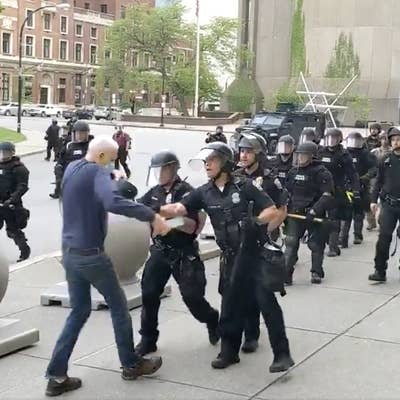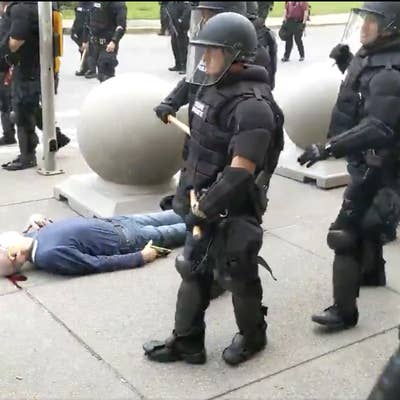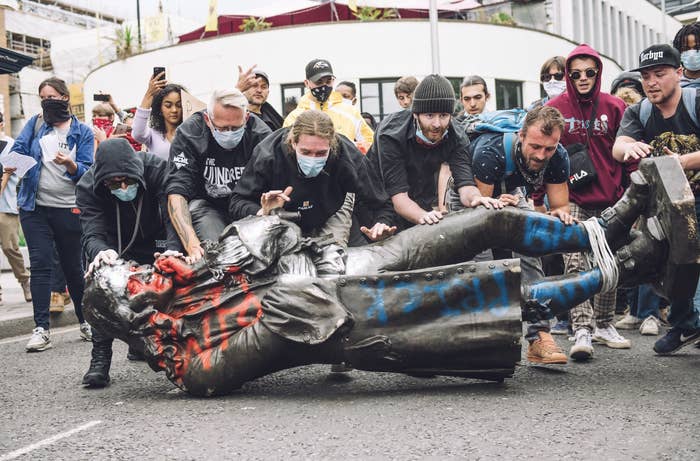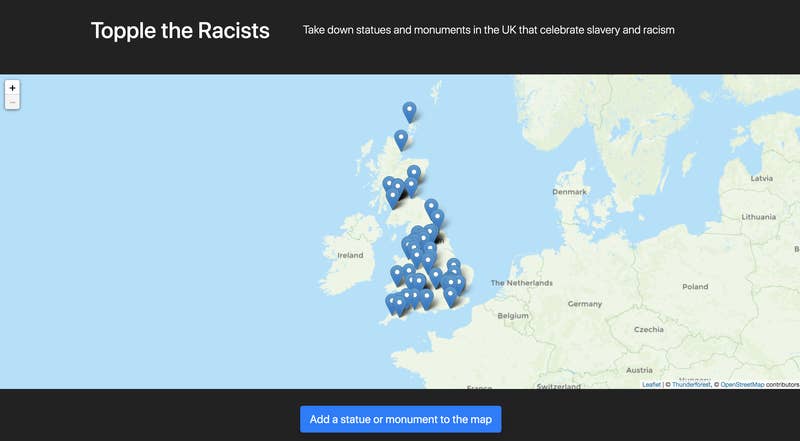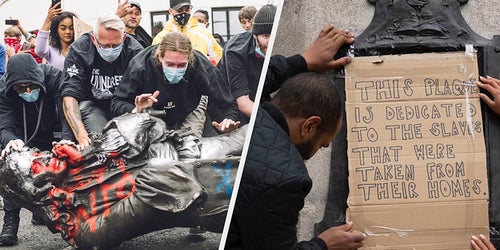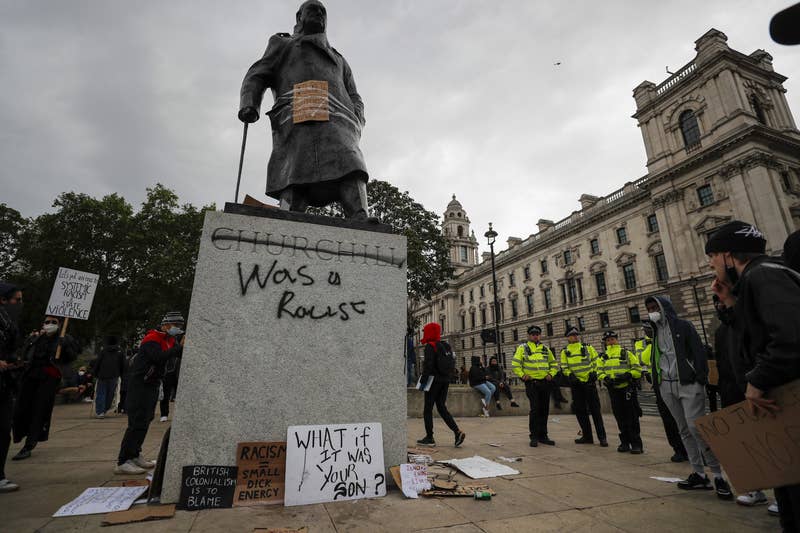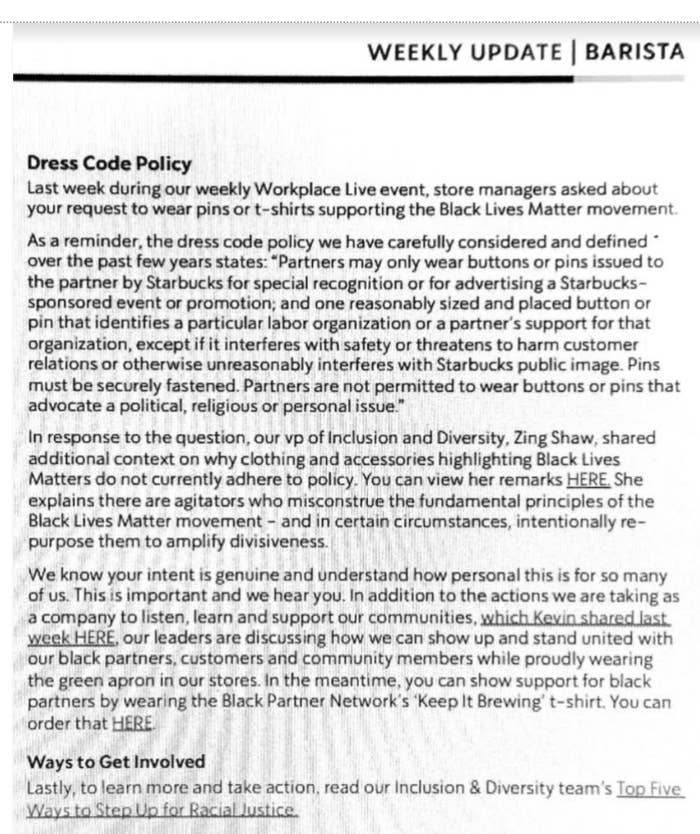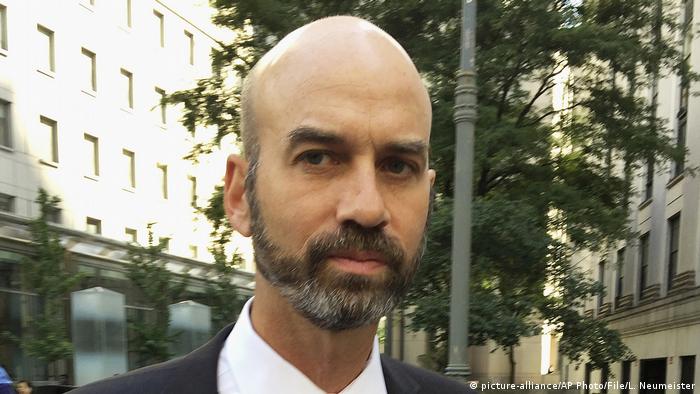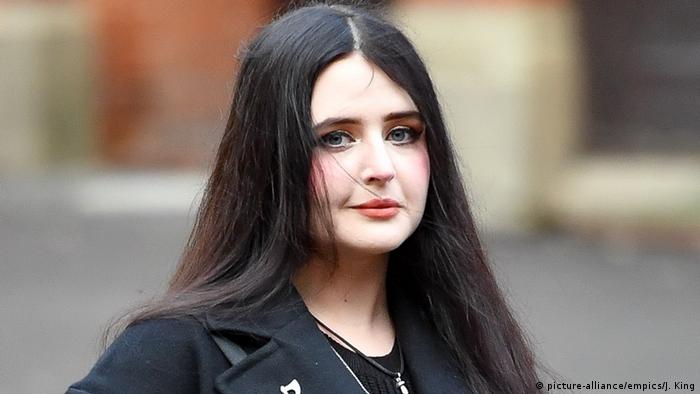Trump's Conspiratorial Tweet About The 75-Year-Old Protester Injured By Buffalo Police Has Provoked Anger Among Friends And Activists
Martin Gugino is the "epitome of a nonviolent person," friends and fellow activists told BuzzFeed News.
Martin Gugino is known as a singularly gentle and nonviolent person. So when President Donald Trump used his Facebook and Twitter accounts to spread a baseless conspiracy theory accusing the 75-year-old activist of staging his own fall after being pushed by two police officers in Buffalo, New York, his friends and fellow activists have been rallying to his defense.
"The ludicrousness of the lie...just a nonsensical accusation," Victoria Ross, an activist who has known Gugino for around 10 years, said about Trump's tweet.
Trump tweeted that Gugino "could be an ANTIFA provocateur" and that the encounter with police "Could be a set up?"
Buffalo protester shoved by Police could be an ANTIFA provocateur. 75 year old Martin Gugino was pushed away after appearing to scan police communications in order to black out the equipment. @OANN I watched, he fell harder than was pushed. Was aiming scanner. Could be a set up?
Ross, the executive director of the Western New York Peace Center (WNYPC), where Gugino has volunteered for years, told BuzzFeed News that a lot of "lying and fabricated misinformation" was going around about her friend.
"When people are allowed to make things up based on nothing, there's a problem," she said.
Keith Giles, who met Gugino in California several years ago, told BuzzFeed News it was all "just ridiculous."
"We know the president will never back down and will never apologize for this," Giles, the program director for Peace Catalyst International in Texas, said.
Andy Worthington, a British journalist and activist, told BuzzFeed News in an email that Trump’s words were insulting.
"Martin is an implacable peace protester, but a very gentle man," he added.
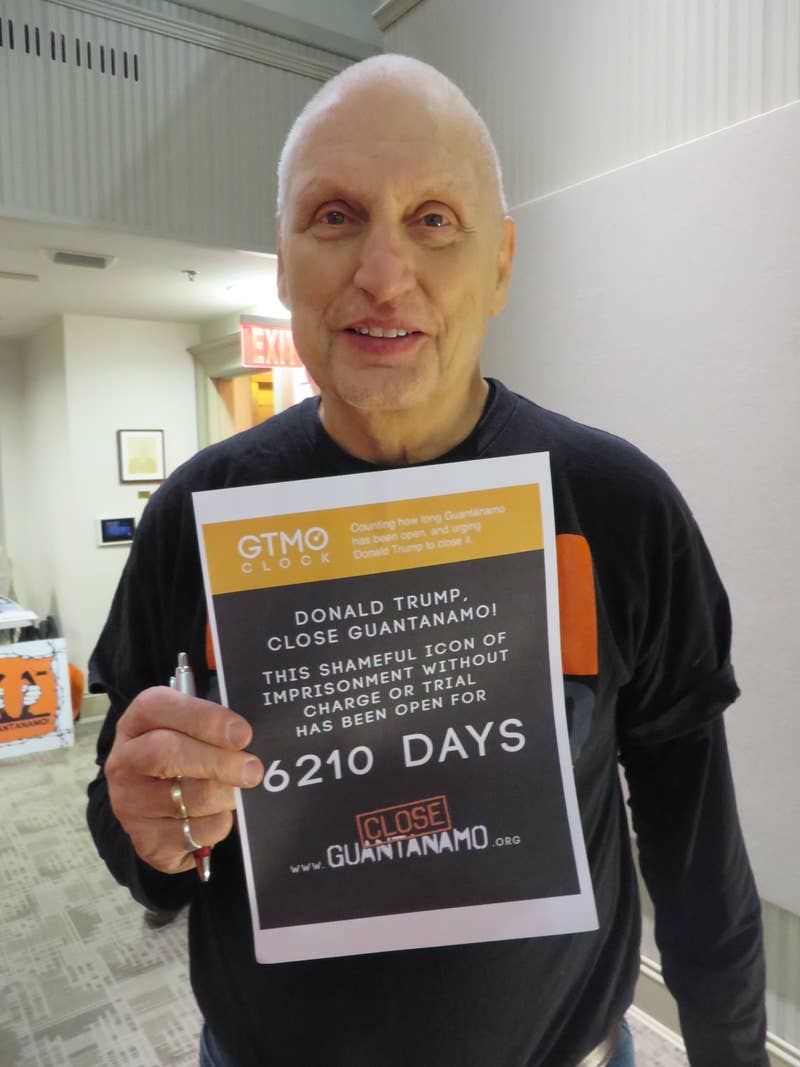
Andy Worthington / Close Guantanamo
Martin Gugino at a January 2019 rally in Washington, DC, calling for the closure of the Guantánamo Bay detention facility.
Terrence Bisson, chair of the Latin American Solidarity Committee at WNYPC who met Gugino at a rally in 2011, said his friends had also spent the weekend trying to counter the suggestion from Buffalo's mayor that Gugino was an "agitator of some kind."
"To have this [tweet] land on our head today is terrible," Bisson said, adding that his friend was frail and "completely down."
"At the moment, he can't move his head very well," he added. "To have something that is based on nothing but the most crazy kind of conspiracy ideas, it's horrifying."
Trump's suggestion on Tuesday that Gugino was an "ANTIFA provocateur" was inspired from a segment by the little-watched cable channel One America News Network, which claimed without proof that his injury was the result of a "false flag provocation by far-left group Antifa," and that he was using a "police tracker" on his phone, BuzzFeed News reported.
"It's absolutely ridiculous," Gugino's attorney, Kelly Zarcone, told BuzzFeed News.
She said that Gugino "totally denies" that he is part of antifa and that no one from law enforcement had ever suggested he was anything but a "peaceful protester."
"We are at a loss to understand why the President of the United States would make such dark, dangerous, and untrue accusations against him," Zarcone said in a statement.
She added that while Gugino is still in serious condition, he had been moved from the ICU to his own room. He had hit his head on the ground in an incident captured in graphic video footage that sparked national outrage.
The video, captured by local NPR station WBFO, shows two Buffalo police officers pushing Gugino while enforcing curfew, causing him to hit his head on the sidewalk and bleed from his ear. The two officers have since pleaded not guilty to second-degree assault charges.
Just about an hour ago, police officers shove man in Niagara Square to the ground (WARNING: Graphic). Video from: @MikeDesmondWBFO
"All these things that people are making up are not helpful," Zarcone said. "[Martin] is just trying to recover and he's even too tired to form words most of the time."
Gugino's friends described him as a longtime activist and a gentle, genuine, and patient man "devoted to the principles of nonviolence."
He is also involved in a range of political issues, including immigration, climate justice, prisoners' rights, economic justice, and homelessness.
Kathy Kelly, 67, met Gugino in 2010 when they were fasting as part of a rally in Washington, DC, to close the Guantánamo Bay detention facility.
"I remember him as someone who listened very patiently and always had a benevolent attitude towards people," Kelly said.
She also wasn't surprised to see Gugino in the viral video walk toward "a group of armed people."
"It didn't surprise me anymore than Gandhi walking towards armed British soldiers," she said. "It was something he would do, believing that he was approaching another human being."
She also laughed away any suggestion that Gugino would be part of antifa, pointing out that she has been involved in protest activism since the 1980s.
"We would know if there was some big, threatening, coherent group called antifa," Kelly said, "and Martin wouldn't be part of it."

Bill Jungels / Courtesy of Victoria Ross
Martin Gugino (third from left) with his fellow organizers from the Latin American Solidarity Committee in April 2018.
Gugino's friends also dismissed the idea that he would stage his own fall, noting how frail he is while coping with other health challenges.
"Would he stage something in a crafty way to accomplish a photo op? I greatly doubt that," Kelly said. "That blood...forming a pool on the pavement represented a great deal of wisdom accrued by one individual who earnestly studied ways to create a better world."
